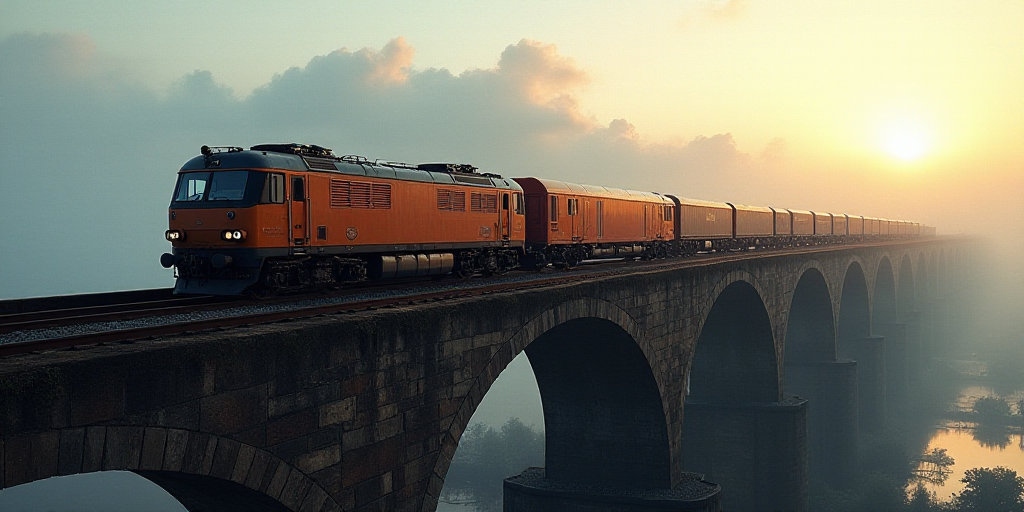Introduction
As dawn breaks, two ships from Singapore and Hong Kong unload containers at the Mexican port of Lázaro Cárdenas, a colossal structure seemingly untouched by the trade storm ignited by U.S. President Donald Trump’s tariff policies.
The Port’s Significance
This terminal, located on the Pacific coast in western Mexico and equivalent to 3,166 football fields in size, receives and exports thousands of vehicles and millions of auto parts, all now burdened with a 25% tariff imposed by Trump.
- The port handles millions of goods from various industries and origins, primarily from Asia.
- It presents a logistical challenge, including the complex task of curbing drug trafficking, one of Trump’s demands in his protectionist crusade.
Lázaro Cárdenas, situated in Michoacán state, mirrors Mexico’s deep integration with the U.S. and Canada under the free trade agreement (T-MEC), now threatened by tariffs.
Connected to a railway reaching the U.S. and Canada, a container can reach Chicago in seven days.
“It’s a strategic logistics hub for goods distribution,” says Joel Méndez, operations manager at the port, during an AFP tour of the facilities.
Mexico’s Economic Resilience
Despite the looming threat, Mexico’s economy has so far dodged contraction: its GDP grew by 0.6% year-on-year in Q1 2025, though analysts warn of challenges in the vital manufacturing sector due to tariffs.
Lázaro Cárdenas isn’t left behind, with container movement up by 11% between January and March when Mexico was already in Trump’s crosshairs.
It has become a significant competitor to the Long Beach port in California and is expected to add another 1,100 hectares (916 football fields).
Automotive and Steel Industries
Emblematic of the T-MEC, the automotive industry is crucial for Mexico, housing factories of global giants like Ford, General Motors, Volkswagen, Audi, and BMW.
From one of the port’s tributaries, one can observe dozens of vehicles from various brands being shipped to the U.S. or transported by road to national destinations.
The terminal leads in vehicle cargo, accounting for 35% of national total in this industry representing 3.6% of the GDP.
Simultaneously, it receives raw materials for the steel industry, exporting finished steel to various markets. ArcelorMittal, one of the world’s largest steelmakers, is based in Lázaro Cárdenas.
Steel and aluminum also bear a 25% tariff. However, Trump exempted Mexico from the so-called reciprocal tariffs imposed on numerous countries, particularly China, and announced measures to soften the impact on the automotive sector.
Combating Drug Trafficking
In a specialized area, dozens of soldiers inspect container products to ensure no illegal drugs are present.
The trafficking of fentanyl, linked to thousands of U.S. overdose deaths, and illegal migration across the 3,100 km border are the factors Trump cites to penalize trade with Mexico and Canada.
A soldier takes samples from large sacks of fish meal for testing in a machine capable of detecting illegal substances like cocaine. The Mexican Navy seized 2,744 kg of cocaine last year.
However, the focus has also shifted to “dual-use substances,” chemicals that can be used for both pharmaceutical production and manufacturing synthetic drugs.
“If the company (owning the cargo) confirms legal acquisition…, then we merely verify if the substance has those details,” explains the naval officer in charge of port surveillance.
Amidst trade tensions, port workers prepare for the industry’s peak season, from May to June, when companies exchange millions of products in anticipation of year-end festivities.
“We aim to have optimal conditions for serving them,” says the operations manager, confident that the port “will continue to grow.”
Key Questions and Answers
- What is the Lázaro Cárdenas port, and why is it significant? The Lázaro Cárdenas port in Mexico is a colossal logistics hub handling millions of goods, including vehicles and auto parts, from various industries, primarily from Asia. Its strategic location and connectivity to the U.S. and Canada make it crucial for Mexico’s integration with these nations under the T-MEC agreement.
- How has Mexico’s economy been affected by Trump’s tariffs? Despite the threat of contraction, Mexico’s GDP grew by 0.6% year-on-year in Q1 2025. However, the manufacturing sector faces challenges due to tariffs imposed on automotive and steel industries, which are vital for Mexico’s economy.
- What industries does the Lázaro Cárdenas port support? The port supports the automotive industry, housing factories of global giants like Ford, General Motors, Volkswagen, Audi, and BMW. It also supports the steel industry, with ArcelorMittal, one of the world’s largest steelmakers, based in Lázaro Cárdenas.
- How does the port address drug trafficking concerns? The Lázaro Cárdenas port employs soldiers to inspect containers for illegal drugs, focusing on “dual-use substances” that can be used for both pharmaceutical production and synthetic drug manufacturing. Despite these efforts, the port remains vigilant amidst trade tensions.






